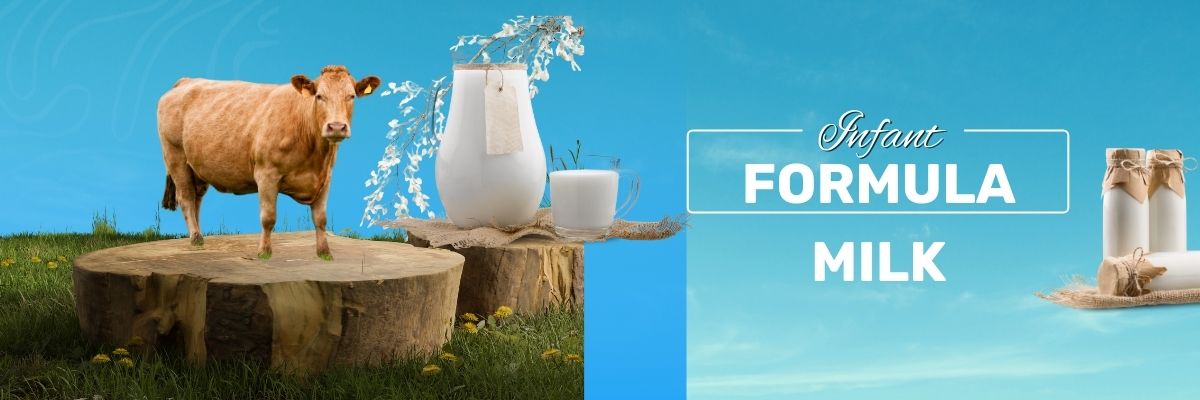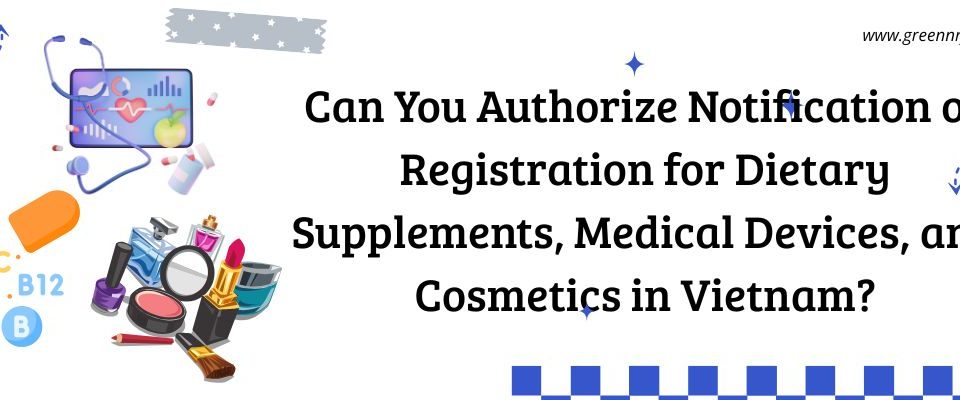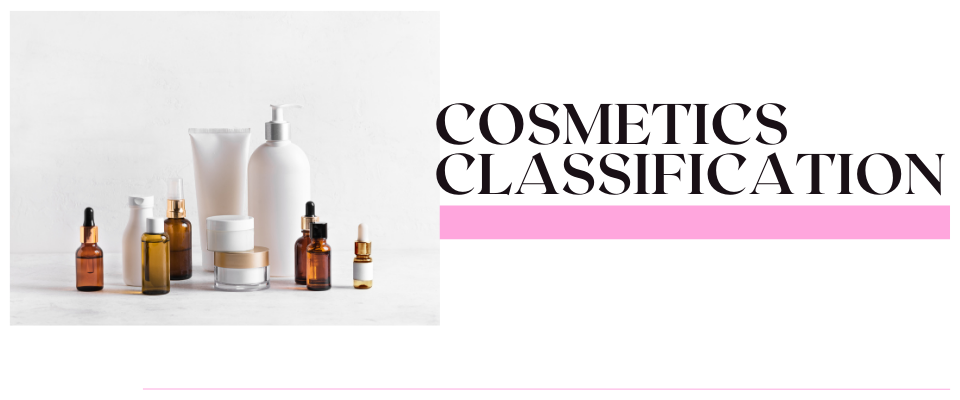- If you have any questions, please contact us!
- +84 965 624 065
- info@greennrj.com.vn

Vietnam Medical Device Registration Guide
March 16, 2025
Important Guide to Import Refurbished Goods in Vietnam: New 2025 Regulations You Must Know
March 19, 2025Demands of Import Infant Formula Milk strict compliance with health regulations, safety standards, and rigorous quality control processes as outlined by the Vietnam Ministry of Health and detailed in Circular 05/2022/TT-BYT. Whether you plan to import formula for infants under 36 months or for older children, understanding the legal requirements and import procedures is crucial for successful market entry. This comprehensive step-by-step guide is designed to help businesses navigate the complex regulations involved in importing infant formula milk efficiently and legally.
1. Understanding Import Regulations for Infant Formula Milk
Before importing infant formula milk or any dairy-based nutritional products, it is vital for businesses to thoroughly understand the import regulations of the destination country. These regulations are strictly enforced to safeguard the health and safety of infants and young children — one of the most vulnerable consumer groups. Key regulatory requirements to consider include:
-
Mandatory product registration with national food safety or health authorities.
-
Full compliance with nutritional, safety, and labeling standards specific to infant formula milk.
-
Obtaining necessary import permits or licenses prior to product entry.
Non-compliance with these critical import regulations can lead to shipment delays, customs rejection, or severe legal penalties, impacting your business operations and market reputation.
2. Product Registration Process Based on Age Group
Importing infant formula milk requires a clear understanding of product registration procedures, which vary significantly depending on the target consumer’s age group. Regulatory frameworks impose stricter controls for infant formula intended for children under 36 months compared to formula for older children. Below is an in-depth, step-by-step guide to the registration and compliance process for both categories.
A. Infant Formula for Children Under 36 Months: Mandatory Product Registration
For infant formula designed for babies under 36 months, product registration—often known as Product Declaration or Product Registration Certificate—is mandatory. This process ensures that all products meet stringent safety, nutritional, and quality standards before they can be legally imported and sold.
Step 1: Comprehensive Dossier Preparation and Submission
Importers must prepare and submit a detailed dossier to the relevant Ministry of Health or Food Safety Authority. The dossier should include:
-
Complete product formulation: detailed ingredient list and sourcing information to verify quality and safety.
-
Manufacturing process description: including hygiene practices and safety controls at the production facility.
-
Nutritional analysis: demonstrating compliance with national and international infant formula standards.
-
Laboratory certificates of analysis: from accredited labs verifying microbiological and chemical safety.
-
Microbiological and chemical safety reports: including tests for pathogens and contaminants.
-
Allergen declarations and relevant safety certifications to protect sensitive infants.
-
Product benefit documentation from the manufacturer supporting nutritional claims.
-
Certificate of Free Sale (CFS) issued by the country of export, confirming the product’s legal sale abroad.
Step 2: Regulatory Review and Evaluation
Upon dossier submission, health authorities conduct a thorough review focusing on:
-
Compliance with local infant formula safety and nutritional regulations.
-
Verification of product composition against approved standards.
-
Assessment of labeling accuracy and safety claims.
Step 3: Mandatory Product Testing
Authorities may require additional product testing to confirm:
-
Absence of harmful microorganisms and pathogens through microbiological tests.
-
Accurate levels of essential vitamins and minerals.
-
Heavy metal contamination checks to ensure safety thresholds are met.
Step 4: Approval and Issuance of Registration Certificate
Once the product passes all evaluations and testing, the importer is issued an official Product Registration Certificate. This certificate authorizes the legal importation, distribution, and sale of the infant formula for children under 36 months.
B. Formula Milk for Children Over 36 Months: Simplified Self-Declaration Registration
For formula milk targeting children over 36 months, the regulatory process is less rigorous. Instead of mandatory registration, importers must submit a Self-Declaration (known locally as Tự công bố sản phẩm) to demonstrate compliance with general food safety and labeling standards.
Step 1: Preparing the Self-Declaration Dossier
The importer should compile and submit documentation including:
-
Detailed product specifications and ingredient formulation.
-
Proof of compliance with general food safety regulations applicable to food products.
-
Accurate product labeling content covering:
-
Complete ingredient list
-
Nutritional information
-
Storage and usage instructions
-
Country of origin
-
Expiry or best-before date
-
Step 2: Submission to Competent Authorities and Publication
After dossier submission, the self-declaration is either immediately effective or comes into force following a brief administrative review. Some countries may also require importers to publish the declaration on their website or register it on a national food safety portal.
Step 3: Continued Regulatory Compliance
Even without mandatory registration, formula milk for children over 36 months must still:
-
Adhere strictly to general food safety standards to ensure consumer protection.
-
Follow specific labeling and marketing regulations, particularly avoiding false or misleading claims about product benefits.
-
Submit to laboratory testing if requested by health authorities during random inspections or post-market surveillance.
Why Understanding Product Registration Is Critical for Importing Infant Formula Milk
Proper compliance with age-specific product registration processes ensures smooth customs clearance, prevents legal issues, and builds consumer trust in your infant formula brand. Whether importing for infants under 36 months or older children, knowing the exact regulatory pathway helps avoid costly delays and penalties, facilitating faster market entry and sustained business growth.
3. Product Testing and Certification
Product testing is a mandatory step in the infant formula import process, designed to verify that the formula meets all national nutritional and safety standards for infants and young children. Key testing categories include:
-
Microbiological Testing: Essential to detect and rule out harmful bacteria such as Salmonella, E. coli, Listeria, and other pathogens that can pose serious health risks to infants.
-
Nutritional Analysis: Confirms that the levels of key nutrients (proteins, fats, vitamins, minerals) exactly match the values declared on the product label, complying with infant nutrition guidelines.
-
Heavy Metal and Contaminant Screening: Tests for toxic elements like lead, mercury, arsenic, cadmium, and other harmful contaminants to ensure levels remain below regulated safety limits.
-
GMO and Allergen Testing: When applicable, verifies whether the product contains genetically modified organisms or allergens, which must be declared according to local regulations.
4. Customs Clearance and Documentation
After successfully completing product registration or self-declaration, importers must prepare for smooth customs clearance by providing comprehensive and accurate documentation. Essential documents typically include:
-
Commercial Invoice: Lists the product value, Harmonized System (HS) code, payment terms, and seller/buyer information.
-
Packing List: Details the quantity, type, dimensions, and packaging specifics of the shipment.
-
Certificate of Origin (CO): Verifies the country where the infant formula was manufactured.
-
Import Permit: A formal license issued by local food safety or import control authorities authorizing product entry.
-
Health Certificates: From competent authorities in the exporting country, validating product safety.
-
Bill of Lading (B/L) or Airway Bill (AWB): Legal proof of shipment for sea or air freight.
-
Customs Declaration Form: Contains declared values, tariff codes, taxes, and duties payable.
Failure to submit any required documents or discrepancies in paperwork can cause shipment delays, additional fines, or outright rejection by customs authorities, severely impacting your supply chain.
5. Storage and Distribution Requirements
Once customs procedures are completed, importers must ensure that the infant formula is stored and distributed under proper conditions to preserve its quality.
Storage Standards:
Proper storage conditions are critical to preserving the nutritional quality and safety of imported infant formula. Importers and distributors must comply with stringent storage standards:
-
Temperature-Controlled Facilities: Infant formula must be stored in cool, dry environments, typically between 15°C to 25°C, avoiding heat, humidity, and direct sunlight that could degrade product quality.
-
Hygienic Storage Conditions: Warehouses should be free from pests, dust, mold, and moisture to prevent contamination. Regular sanitation and pest control measures are essential.
-
Stock Rotation (FIFO Method): Applying the First-In, First-Out principle ensures older stock is sold before newer batches, maintaining product freshness and reducing waste.
Distribution Standards:
The distribution phase must maintain product quality until the formula reaches retailers or end consumers:
-
Clean and Secure Transportation: Vehicles used for delivery must be hygienic, temperature-controlled when necessary, and protected from contamination.
-
Real-Time Tracking Systems: Advanced temperature and condition monitoring during transit ensure cold chain integrity and timely alerts if storage conditions deviate.
-
Timely Delivery: Efficient logistics minimize storage time and prevent formula from reaching shelves near expiration, ensuring optimal shelf life for consumers.
6. Compliance with Post-Import Regulations
Compliance does not end after customs clearance and product launch. Ongoing adherence to regulations is essential to avoid penalties, product recalls, or damage to brand reputation.
Post-Market Surveillance and Inspection
-
Routine Inspections: Health authorities regularly inspect warehouses, retail points, and distribution centers to verify compliance with safety standards.
-
Random Product Sampling and Testing: Authorities may collect market samples for independent lab testing to verify ongoing product safety and nutritional accuracy.
-
Monitoring Consumer Feedback: Companies must track and address consumer complaints or adverse events promptly to ensure infant safety.
Marketing and Labeling Compliance
-
Prohibition of False Claims: Marketing materials must not make unsubstantiated claims about disease prevention or treatment.
-
Clear Labeling Requirements: Labels must include clear preparation instructions, age appropriateness disclaimers, ingredient lists, nutritional facts, and storage guidelines.
-
Advertising Restrictions: Many countries restrict advertising infant formula to new or expecting parents to protect breastfeeding initiatives.
Record-Keeping and Reporting Obligations
-
Comprehensive Documentation: Businesses are required to maintain detailed records of import history, testing certificates, distribution channels, and marketing materials.
-
Regulatory Reporting: Authorities may request periodic compliance reports or conduct audits; timely and accurate submissions are mandatory to maintain market authorization.
Conclusion: Ensure Smooth Import of Infant Formula Milk with Expert Support
Importing infant formula milk is a complex and highly regulated process requiring strict adherence to product registration, rigorous quality testing, customs clearance, and ongoing post-import compliance. By fully understanding and following these essential procedures, businesses can minimize legal risks, avoid shipment delays, and guarantee the highest safety standards for consumers.
If you are planning to import infant formula milk into Vietnam and want reliable, professional assistance, Green NRJ is your trusted partner. Our expert team offers comprehensive import services including regulatory consultation, product registration, self-declaration support, and meticulous documentation preparation to ensure a seamless import process.
Contact us today to learn how we can help you successfully navigate Vietnam’s infant formula import regulations and bring your products to market with confidence.
Related Articles
- Guide to Importing Goods into Vietnam: Step-by-Step for Foreign Businesses
- How To Import & Sell Food Supplements In Vietnam Now?
- How to Import and Sell Cosmetics in Vietnam
- The Process of Importing Infant Formula Milk
- Import Procedures for Civil Cryptographic Products in Vietnam: Regulations & Legal Compliance
- A Complete Guide to Importing Laptops into Vietnam: Regulations, Tax, and Compliance Requirements
- Comprehensive Procedure for Importing Honey into Vietnam




